RVs, or motorhomes, come with the convenience of mobility since they’re self-contained vehicles equipped with living quarters. On the other hand, travel trailers require a separate vehicle for towing but offer flexibility when you arrive at your destination, as you can unhitch the trailer and use the towing vehicle independently.
Understanding how these options fit into your travel plans is crucial. If you value the ability to drive and park your living space with ease without worrying about a separate towing vehicle, an RV might suit you best. Conversely, if affordability and the ability to detach your living quarters from your mode of transport appeal to you, a trailer could be the right choice. Each has its own benefits, from the versatility and comfort of RVs to the cost-effectiveness and convenience of trailers.
Key Takeaways
A trailer is typically a vehicle towed behind another vehicle, using a hitch connection. When referring to “RV,” or Recreational Vehicle, this term encompasses various types such as trailers, motorhomes, and fifth wheels. It’s important to note that some individuals use “RV” synonymously with “Motorhome,” implying a self-contained, motorized unit. In contrast, a trailer, which requires an external vehicle like a truck for towing, distinctly differs from a motorhome.
Defining RVs and Trailers
In exploring the world of recreational travel, it’s essential to understand what exactly an RV (Recreational Vehicle) is and how it differs from various types of trailers. Both offer unique benefits and cater to different styles of travel and living on the road.
What is an RV?
An RV, or Recreational Vehicle, is a broad term that encompasses motorized vehicles designed for living quarters. They are generally divided into three main classes, each offering various features and amenities. Class A RVs are the largest and most luxurious, often resembling bus-like structures with ample living space. Class B RVs are smaller, built on a van chassis, and focused on combining mobility with comfort. Lastly, Class C RVs strike a balance between the two, being built on a truck chassis and offering more living space than Class B but are more manageable than the sizable Class A.
Types of Trailers
Trailers are non-motorized units that must be towed by a separate vehicle. They can be categorized into several types, most notably travel trailers and fifth wheels. Travel trailers are hitched to the towing vehicle’s bumper and vary widely in size and amenities. Fifth wheels require a special hitch installed in the bed of a pickup truck and typically provide more living space compared to other trailers, making them popular for long-term living or extended travel. Specialized camping trailers with amenities that resemble those of a camper are also common for enthusiasts seeking a balance of utility and comfort. Each type of trailer offers a unique way to experience the great outdoors, catered to the traveler’s requirements.
Benefits of an RV
As a seasoned traveler, I’ve come to appreciate the expansive benefits an RV provides, from the comforts of home on the wheels to unparalleled flexibility.
Home Comforts on the Road
Traveling in an RV eliminates much of the discomfort associated with the on-the-go lifestyle. I can sleep in my own bed every night, use my personal bathroom, and cook in a kitchen equipped with facilities I’m accustomed to. The convenience of having a reliable toilet is not to be underestimated.
Mobility and Flexibility
One of the greatest advantages I enjoy is the freedom to go wherever the road takes me. An RV provides the flexibility to change travel plans on a whim, visit remote locations, and stay longer in places that captivate me.
Built-in Amenities
RVs come with a variety of built-in amenities, making life on the road incredibly convenient. For example, I can replace fixtures with home kitchen faucets for an upgraded experience. Additionally, dealing with a leak underneath the kitchen sink becomes a manageable task, no different than in a stationary home. Some Class A RVs also offer outdoor kitchens, perfect for those who love al fresco dining and entertaining.
Advantages of Trailers
When deciding on the best way to hit the road, trailers offer multiple benefits that cater to different lifestyles and budgets. My focus here will be on the practical advantages they bring to the traveling experience.
Cost-Effectiveness
One of the main draws I find with trailers is their affordability. Compared to motorhomes, I can obtain a travel trailer with decent amenities for significantly less capital. Not only is the initial purchase more budget-friendly, but I’ve also noted that the ongoing maintenance costs are generally lower. This includes expenses related to registration, insurance, and upkeep, making the total cost of ownership more manageable over time.
Versatility
Trailers are highly adaptable, satisfying a range of travel needs from weekend getaways to longer road trips. The option to detach the trailer from the towing vehicle gives me the freedom to explore without bringing my entire setup along. This flexibility means I can park the trailer and use my vehicle independently, which is invaluable on varied terrain or when running errands.
Towing and Storage
Concerning logistics, trailers are simpler to tow and store. They can be hitched to various types of vehicles, which often means I can use my current vehicle without needing a specialized or additional one. When considering generator mounting options, trailers also provide customizable solutions to power my travels. For storage, trailers require less space than a full RV, making them easier to accommodate at home or in storage facilities. I appreciate the convenience of a trailer when maneuvering through tight spaces or fitting into compact camping spots.
Considerations for Your Choice
When you’re deciding between an RV or a travel trailer, it’s critical to weigh the variables that can affect your overall experience and satisfaction with your choice. Consider how each option aligns with your specific wants, needs, and resources.
Lifestyle and Travel Needs
The way I see it, your choice will heavily depend on how you intend to use your RV or trailer. If embracing the nomad lifestyle is your goal, a motorhome offers unparalleled convenience as your living space moves with you. On the other hand, if you prefer setting up a stationary camp and exploring in a smaller vehicle, a travel trailer might be more suitable since you can detach it and drive the towing vehicle freely. The flexibility of an RV also means considering practicalities like establishing a legal domicile and address requirements, especially for full-timers.
Budget Constraints
As I ponder the cost, it’s evident that budget plays a key role in this decision. Travel trailers usually present a less expensive upfront purchase than motorhomes and can often be towed by vehicles you may already own, saving additional outlays. However, the true cost of RV ownership encompasses more than just the sticker price, including ongoing maintenance, storage, and operation costs.
Maintenance and Upkeep
I can’t overstate how important it is to consider maintenance and upkeep. Motorhomes generally demand higher maintenance efforts and costs due to their complex engines and larger systems. Travel trailers, while simpler, still require regular checks to ensure everything from hitches to brakes is in working order. It’s also vital to understand the RV’s water systems, including the management of freshwater, greywater, and blackwater, to prevent any unwanted issues during your travels.
Steering Differences Between Towable and Motorized Campers
Motorized Campers (RVs)
Motorized campers are essentially large vehicles with their own engine and driving controls. The steering mechanism in these campers is akin to that of a large truck or bus. They typically have a steering wheel directly connected to the front wheels. This direct connection offers more immediate control over the vehicle’s direction. However, the larger the RV, the wider its turning radius tends to be, making tight maneuvers more challenging. Drivers need to be particularly mindful of the vehicle’s length and height when navigating through traffic, making turns, and parking.
Towable Campers (Trailers)
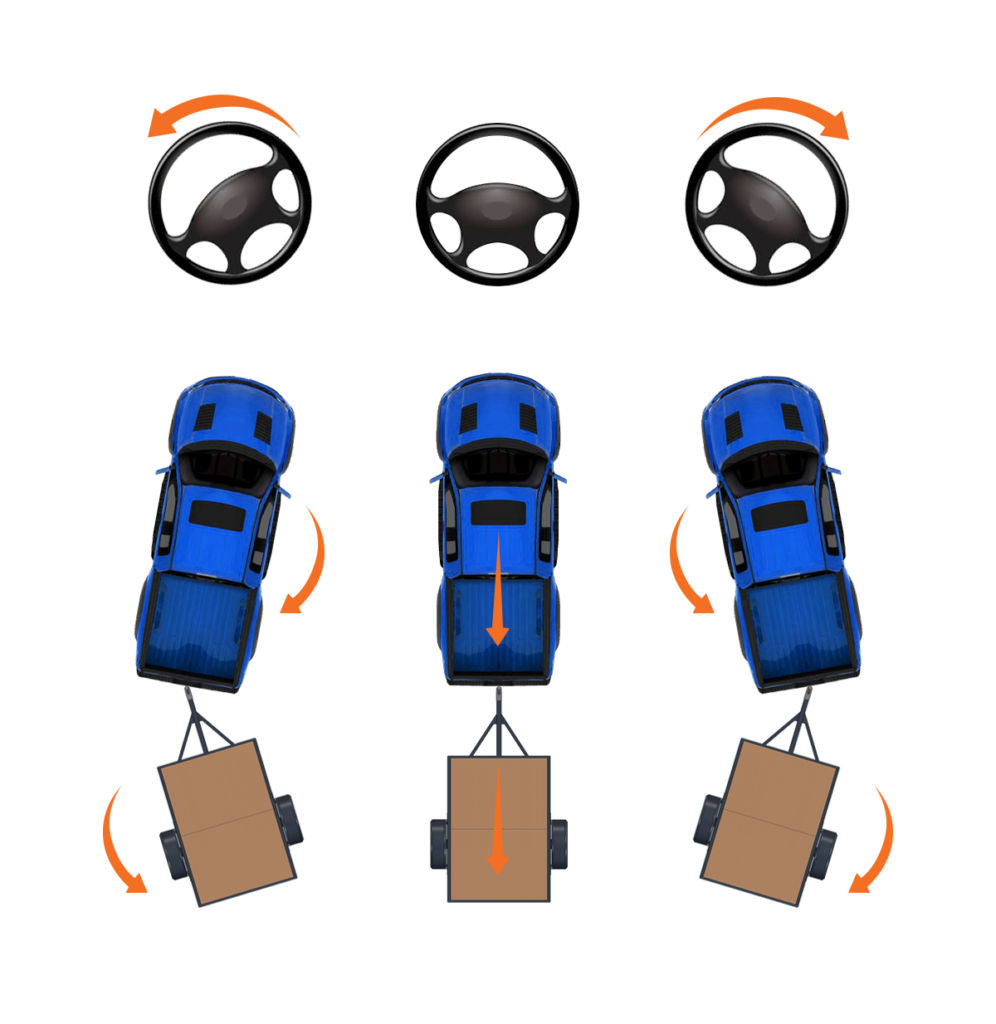
Towable campers, on the other hand, are pulled behind a separate vehicle, usually a truck or SUV. The steering for these campers is indirectly controlled through the towing vehicle. This setup requires a different skill set as the driver must account for the length and pivot point of the trailer. When turning, the trailer follows a tighter arc than the towing vehicle, necessitating wider turns to avoid curbs or other obstacles. Reversing with a towable camper is another area where the difference is pronounced; it requires practice and skill as the trailer moves in the opposite direction to the towing vehicle’s steering.
Real-World Implications
In practice, these steering differences mean that driving a motorized camper feels more like driving a large vehicle, with more straightforward steering but requiring caution for its size. Conversely, towing a camper requires a constant awareness of the two separate yet connected entities – the towing vehicle and the trailer. Drivers must be vigilant of the trailer’s sway, especially in windy conditions or when passing large vehicles, as this can affect stability and control.
Practical Tips
For those new to driving these types of vehicles, here are a few tips:
- Motorized Campers: Practice in an open area to get a feel for the vehicle’s size and turning radius. Always be aware of overhead and side clearances.
- Towable Campers: Spend time practicing turns and reversing in a safe, open area. Invest in quality towing mirrors to enhance rear visibility.
- Both Types: Take wide turns, be mindful of your vehicle’s length when changing lanes, and always plan your route with size constraints in mind.
Making the Decision
Choosing between an RV or a trailer involves careful consideration of your travel needs, budget, and lifestyle. It’s a decision that will influence your adventures on the road for years to come.
Research and Resources
I start by compiling all the necessary information. This includes understanding the types of RVs and trailers available, their features, and how they fit with my intended use. Utilizing a checklist of questions aids in covering all aspects of the potential purchase, which can be especially useful when viewing different models and considering the maintenance history and mileage of a used RV.
Expert Advice
Next, I seek insights from industry professionals and seasoned RVers. Their experiences and tips can offer valuable perspectives on what to look for in an RV and common pitfalls to avoid. Gathered wisdom might suggest the best time to buy, potentially leading to significant savings.
Personal Assessment
Finally, I reflect on my personal situation. I’ll consider my budget, including whether paying cash has advantages, or if financing through a loan might be the better route. I assess how often I’ll be using the RV or trailer, where I plan to travel, and who will be accompanying me on these journeys to ensure the choice supports my lifestyle and travel goals.


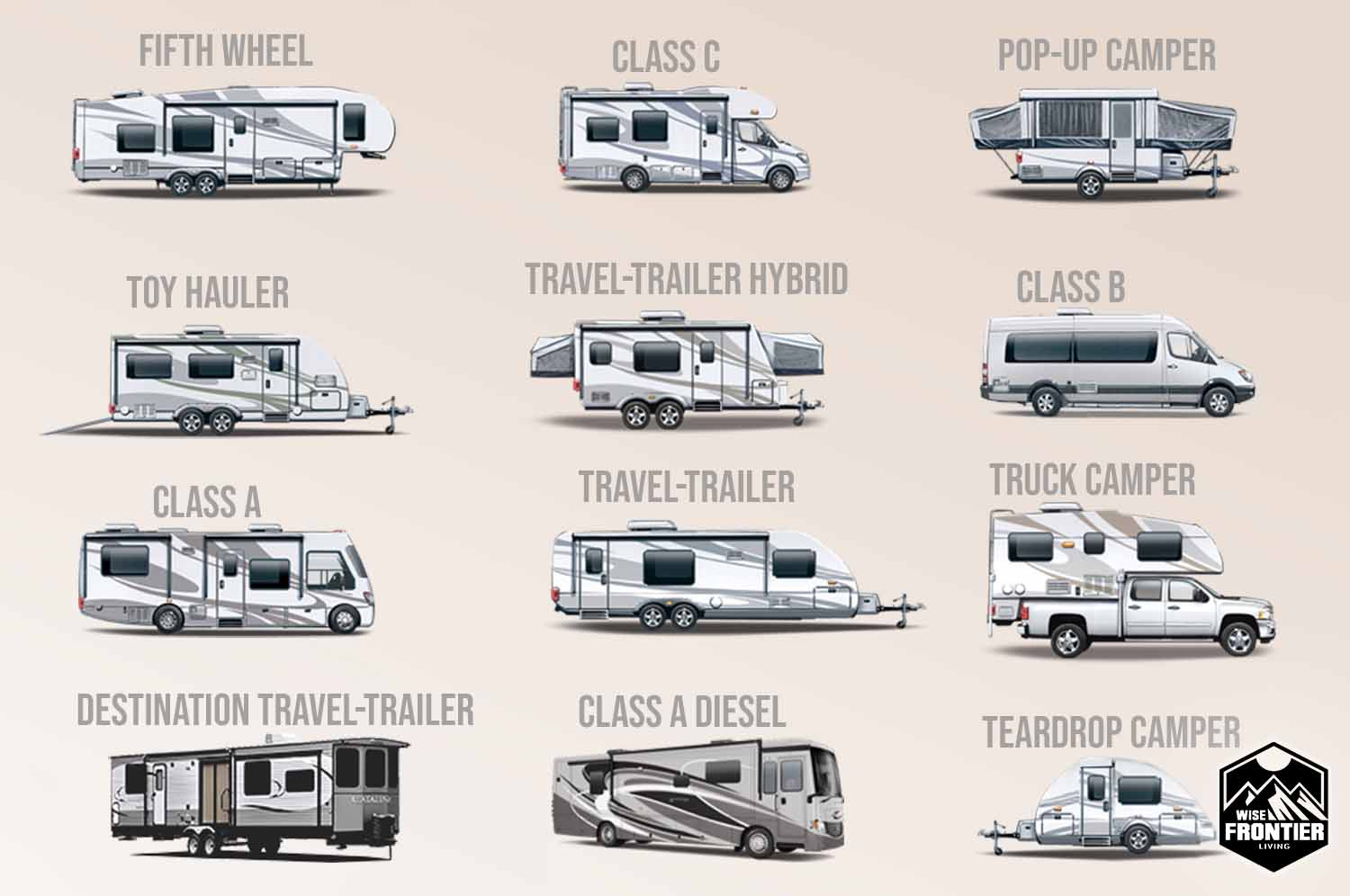
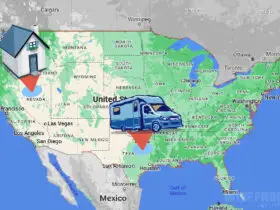
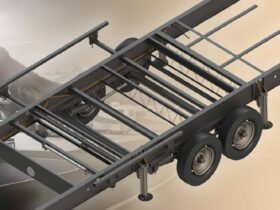
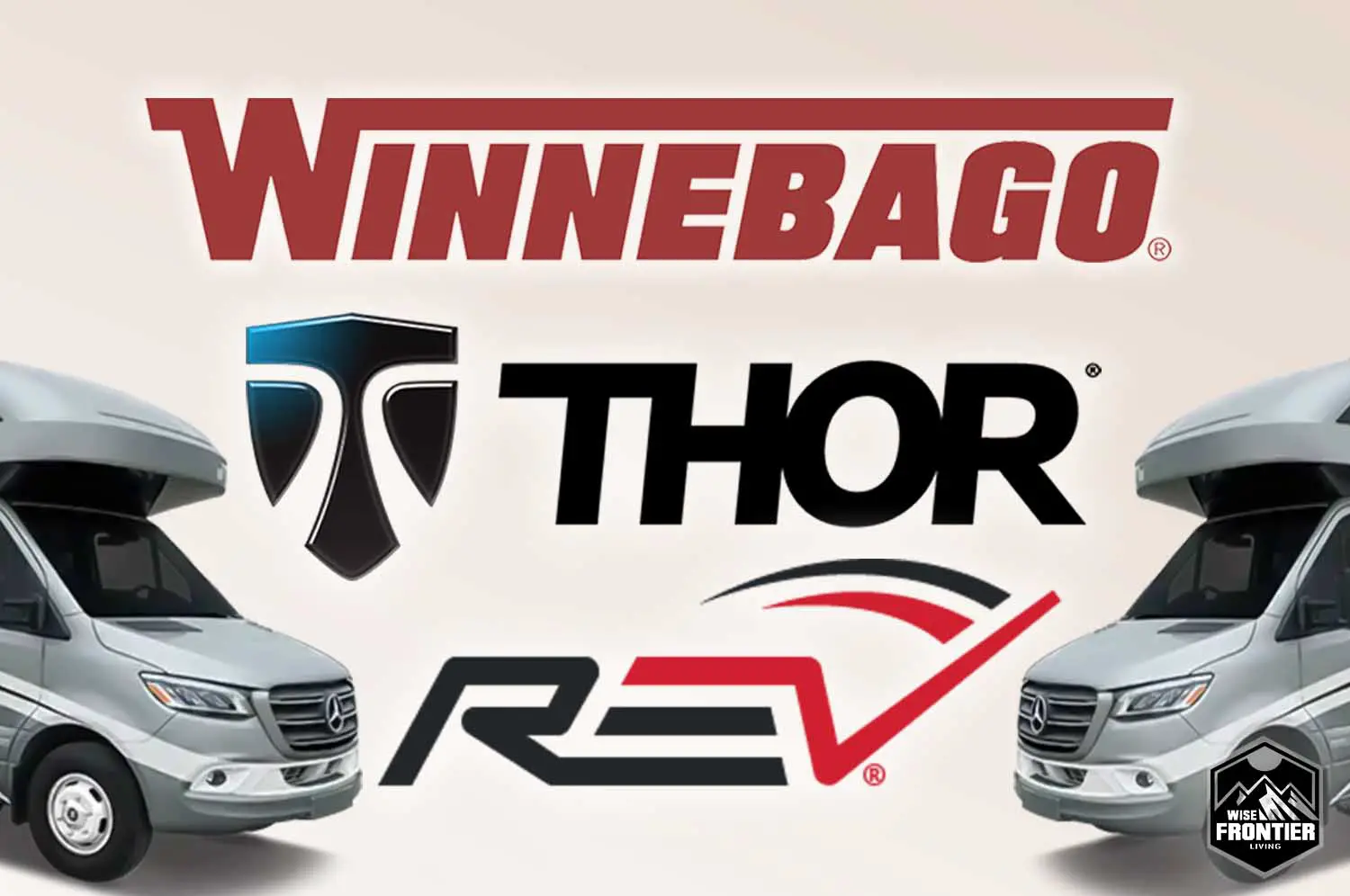
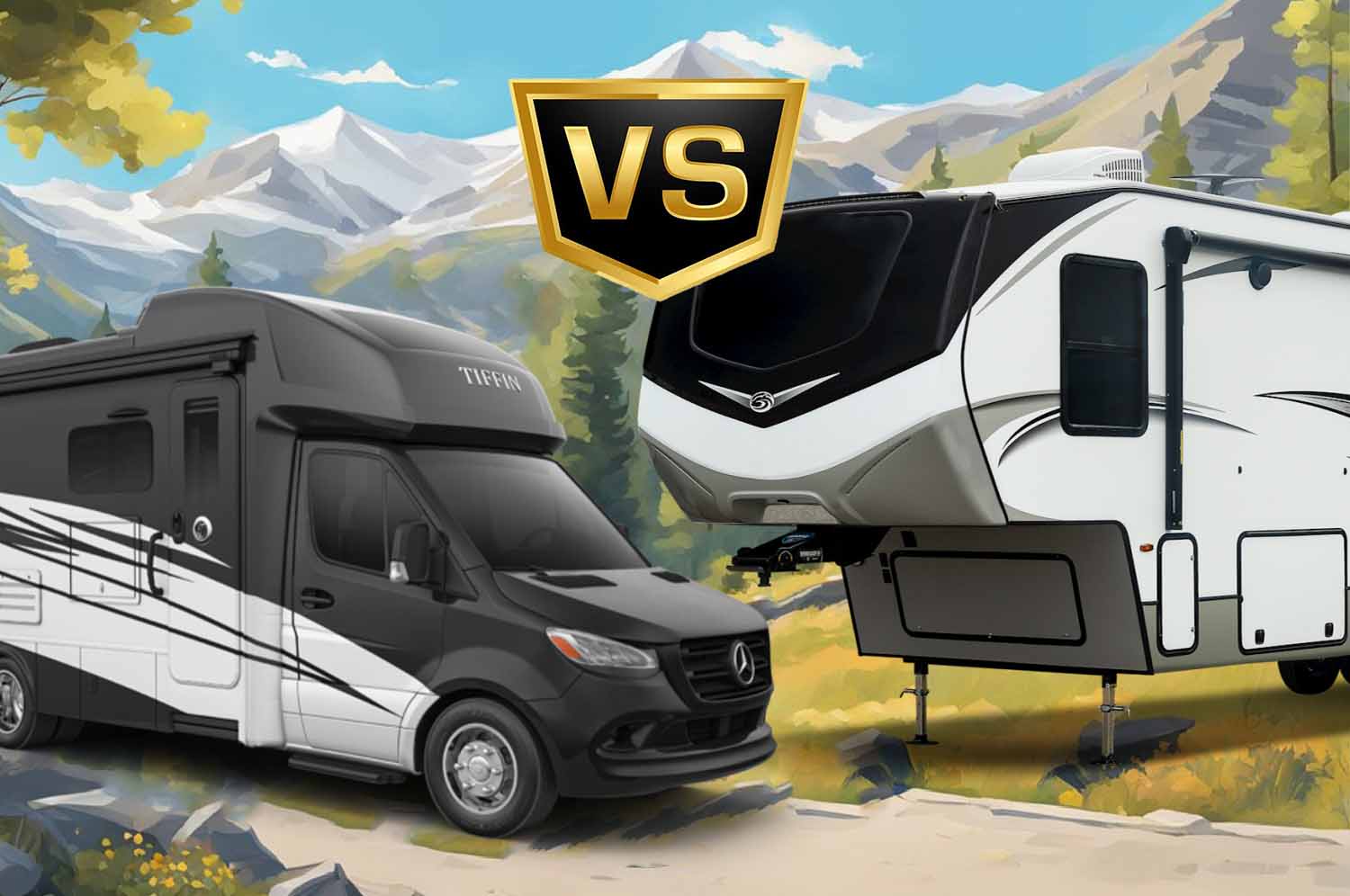


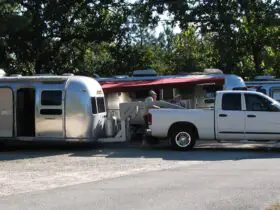
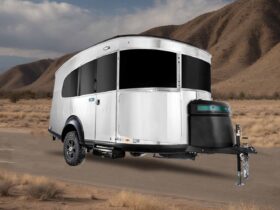

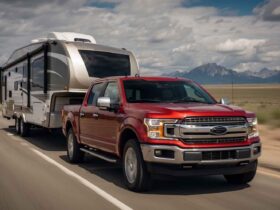
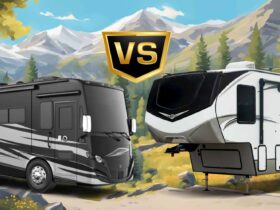
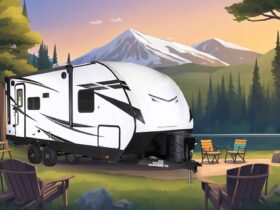
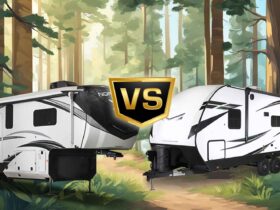
Leave a Reply